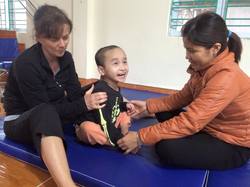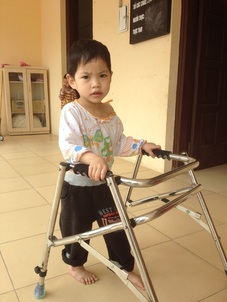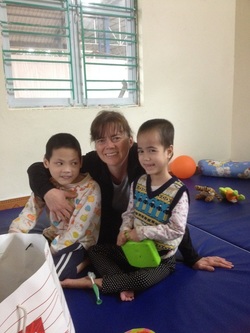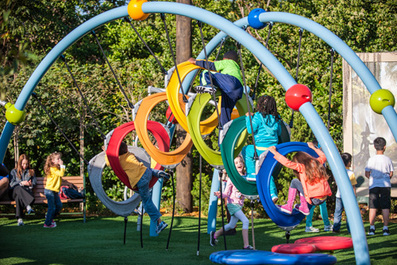
I had the opportunity to travel to Vietnam in February 2015 to volunteer as a physio at a government run orphanage in Ba Vi, Vietnam. I arranged the trip with VIVPS/Helping Hands. They are a group run by an Australian that places volunteers at the orphanage and assists with orientation, living arrangements, etc. while you are there.
The Ba Vi Centre houses 120 children with severe disabilities. The centre provides basic food and shelter, but no real rehabilitation services are available for the children.
The Ba Vi Centre houses 120 children with severe disabilities. The centre provides basic food and shelter, but no real rehabilitation services are available for the children.
| VIVPS has been placing volunteers (physio and others) at BA Vi for the past 2 years. There is now a Rehab room, covered outdoor play areas for all the children, a covered playground, 2 teachers (one regular and one for the blind), full time rehab assistants, as well as a stream of volunteers to provide rehab, training of rehab assistants and much needed love and interaction for the children. My two weeks were spent working one on one with a dozen children, as well as training the Rehab assistant with activities to carry on after I left. The assistant had no formal training, no previous experience and little English. That made for some interesting experiences. It was amazing to see how much a child could learn and how much progress could be made in a very short time. Some of these children had experienced so little movement, but once they began moving, rolling and sitting up, the gains happened quickly. | It is really hard to describe the conditions that these children live in. The children are fed a watery rice mixture with a few vegetables (and occasionally meat) thrown in, three times a day. They have their diaper changed 3 times a day. They are given a bath once every 2 weeks. They are not given liquids to drink, as this may make them need more frequent diaper changes, and they only get 3. Many children are left lying on their backs in their cribs all day.They may be sat up in a chair where they are then required to sit for most of the day. They are not allowed to go outside in the sun: it might make them sick. They are not allowed to go outside if it's cold: it might make them sick. The children are fed lying on their backs, as it's faster to feed them this way. |
There are too many highlights to mention here, but I know that I will never be the same person that I was before this trip. It was amazing to be able to give the gift of mobility to these children. The smiles on their faces as they learned new skills was their gift back to me. If you've ever thought of stepping out of your comfort zone and "having an adventure", I'd highly recommend a working holiday. I'm already itching to go back. If you'd like more information, please contact me through the website. Maybe we could go together!
Check out their website here: http://www.vietnamvolunteer.org/
and their Facebook page: www.facebook.com/VIVPS?fref=ts
Angela
Check out their website here: http://www.vietnamvolunteer.org/
and their Facebook page: www.facebook.com/VIVPS?fref=ts
Angela




 RSS Feed
RSS Feed